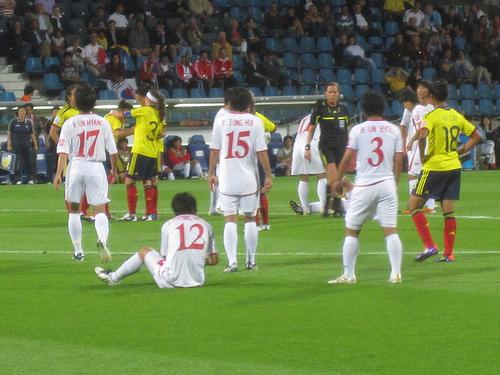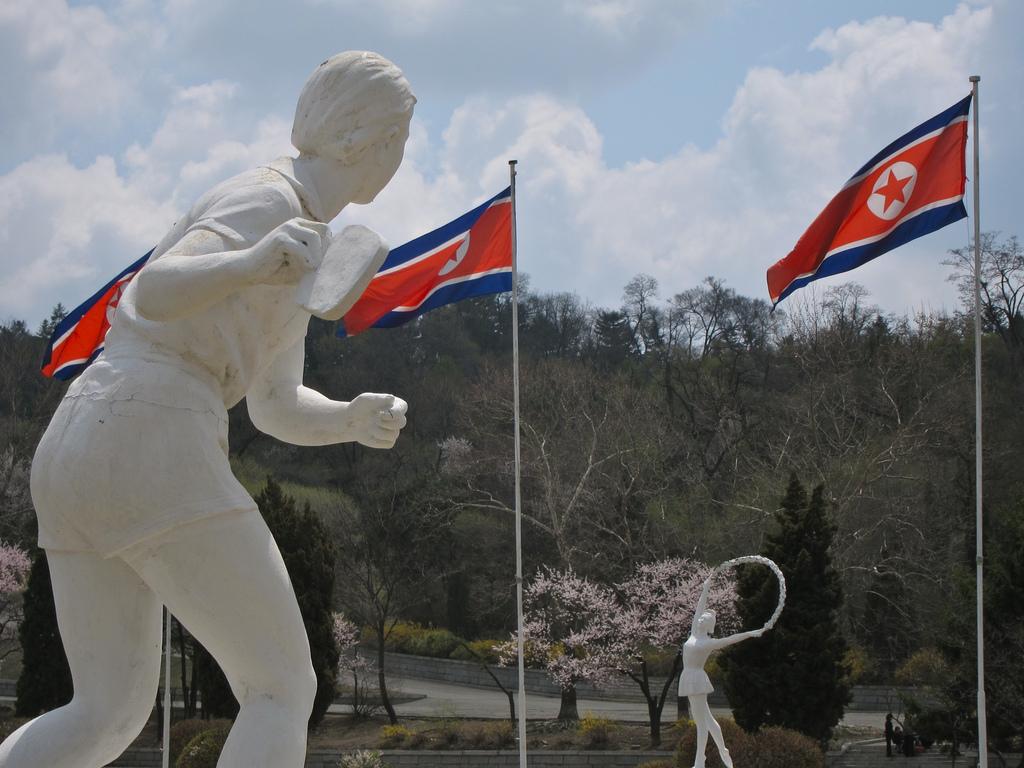
On July 25, 2012, days before the opening ceremony for the London Olympics, the North Korean women’s soccer team was scheduled to play Colombia. Even before the game started, problems began to arise.
A North Korean player’s name was announced when all of a sudden, a loud uproar rang out through the stadium as a South Korean digital flag flew behind the head of the player on the jumbotron.
When the South Korean flag was displayed on the screen, the North Koreans walked off the field and, after several apologies from FIFA (Fédération Internationale de Football Association), returned an hour later to beat Colombia 2-0.
In an interview with the Huffington Post, the day after the incident, Colombia soccer coach Ricardo Rozo shared his strong feelings about the incident. “I’ve never had anything happen like this before, where a country can delay a match for an hour” Rozo said.
Being a soccer player, Paly goalkeeper Tony Maharaj (‘14) of Indian descent, expressed his empathy towards the players of North Korea.
“I think it was an insult to the North Koreans to have their enemy’s flag portrayed by their pictures.” Maharaj said. “They had a right, as soccer players, to walk out. Even though it might have been an accident, it still greatly upset those soccer players and coaches from North Korea.”
Politically, the world has seen the North Korean government overreact to certain controversial events and situations. Currently the North Koreans have been overreacting to American military movements by moving their missiles closer to the Demilitarized Zone (DMZ) and threatening to attack South Korea and the United States.
Prior to the Olympics incident, in 2011 The North Korean women’s team faced another controversial issue after being banned from the 2015 Women’s World Cup because five players tested positive for performance enhancing drug.
The North Korean press’ reaction to this story was to talk about a lightning strike that injured many of the players during a practice. According to an article written by Brent Jones in USA Today, North Korean officials reported that five players had been treated with a traditional therapy called musk deer gland therapy, which according to FIFA regulations is a performance enhancing drug that has been banned.
Adrien Chen posted an article called Why The Women of North Korea Are The Most Interesting Olympians on Gawker on July 27th, 2012 criticizing the media for false reporting and saying that the facts presented by North Korean media do not add up. This is similar to the time when Kim-Jong Il supposedly had an astonishing 11-holes-in-one and 38-under-par golf round, which allegedly occurred on his first time out on the course.
More recently, Dennis Rodman, the retired American Hall of Fame basketball star, and three Harlem Globetrotters joined Kim-Jong Un in North Korea for a dinner and basketball game.
After what seems to have been a successful dinner with the leader, Rodman has boasted that he and Kim-Jong Un have summer plans and will continue to have a friendship. There are multiple explanations offered for why the Supreme Leader of North Korea chose Rodman instead of Obama. After Rodman came back and began to brag about their friendship, it became clear to many that this was not a secret diplomatic mission.
On a TV interview with “CBS This Morning” retired NBA star Shaquille O’Neal commented on Rodman’s trip to Pyongyang. “We as people should understand our roles in life” O’Neal said. “And I think certain people should leave the diplomacy to diplomats. It was a very risky move what he did.”
Sports journalists are saying that Kim-Jong Un has a newfound love for sports, which his father had to cheat to be good at.
The situation between North Korean sports and politics is not unique.
In the 1968 Olympics Tommie Smith and John Carlos, gold and bronze medalists in the 200m, wore black clothing and raised their fists demonstrating against racial discrimination of black people In the United States. They were booed, and two days later, the two athletes were sent home for violating Olympic protocol by bringing politics into the sports, according to a BBC news report.
The 1980 Summer Olympics in Moscow was boycotted by the United States to protest the Soviet Union’s invasion of Afghanistan. Later, in 1984 the Soviet Union would respond by boycotting the Summer Olympics in Los Angeles.
To this day, politics and sports continue to intertwine making situations all the more complicated and disastrous.
Image above story: “Sculpture:Entrance to the Kim Il Sung Stadium, Pyongyang, DPRK (North Korea)” John Pavelka. Used under a Creative Commons Attribution 2.0 Generic license.




